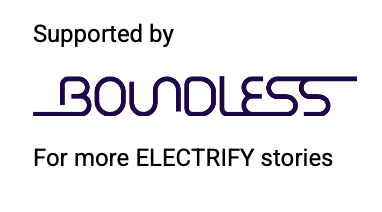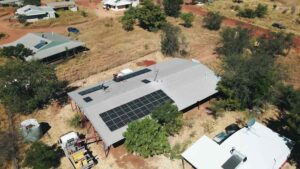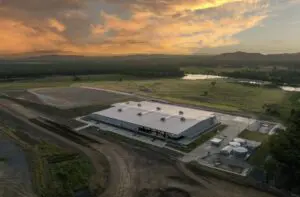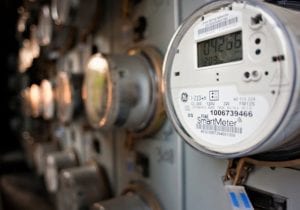 Electrification and energy efficiency advocates have welcomed news of a new federal government policy incentive offering tax deductions to small and medium businesses for money spent on measures to cut their electricity consumption and quit gas.
Electrification and energy efficiency advocates have welcomed news of a new federal government policy incentive offering tax deductions to small and medium businesses for money spent on measures to cut their electricity consumption and quit gas.
The new Small Business Energy Incentive, a teaser of what’s to come in the Albanese government’s forthcoming budget, is tipped to help up to 3.8 million small to medium sized businesses, offering tax deductions of up to $20,000.
Announced on Sunday by Treasurer Jim Chalmers, the initiative will be available to businesses with a turnover of up to $50 million, and will reward those that make concrete energy efficiency steps, including electrifying their cooling and heating systems, installing batteries and heat pumps, and upgrading fridges and other appliances.
The maximum bonus tax deduction is $20,000, and eligible assets or upgrades will need to be first used or installed ready between 1st July 2023 and 30rd June 2024. The initiative is expected to cost a total of $314 million.
“This incentive is all about helping small business save energy and save on their energy bills, support that comes on top of the direct energy bill relief for small businesses that will be a centrepiece of the budget,” said Chalmers.
“The Albanese government’s policies like the Small Business Energy Incentive are all about giving small businesses the leg-up they need to expand and grow.”
Energy Minister Chris Bowen said that while small businesses were aware of their options, the capital costs of installing energy efficiency measures could be prohibitive.
“The Small Business Energy Incentive unlocks that investment to help businesses save on their bills over the medium and long term,” he said.
Energy non-profit Rewiring Australia welcomed the announcement in a statement, with co-founder and chief scientist Dr Saul Griffith saying the move would accelerate electrification.
“The federal government promised a ‘meaningful and substantial’ package of electrification measures in the federal budget and this announcement is the first part,” said Griffith.
“Swapping out fossil fuelled devices and energy sources for renewable-backed electrification is the fastest, most cost effective way to decarbonise our domestic economy.
“It embeds thousands of dollars’ worth of annual savings into the annual operations of small businesses, savings that accrue over the long term,” Griffith said.
“Many small businesses who are reliant on fossil fuel energy have suffered serious bill shock this year as commodities such as gas have spiked.
“But when you assist small businesses to swap out polluting energy sources and machines for renewable-powered electric versions you permanently lower the cost base of a business.”
The move is a first step ahead of the Federal Budget, due to be handed down on Tuesday, May 9.
Luke Menzel, CEO of the Energy Efficiency Council, said he was keen to see what other measures would be included.
“Obviously we haven’t seen the full suite of the federal government’s investments in this space, so we really look forward to the budget next week,” he said. “But this is a positive indication of their priorities.”
Menzel pointed out that the move will not only help accelerate the transition, but have trickle-down effects on the economy.
“The thing I noted from the way this is designed is it’s encouraging investments that will bring down those energy bills now, and in the context of a highly inflationary environment if we can bring down our business energy bills that’s one less cost that businesses then have to pass on to consumers,” he said.
In a Linked-In post Lynne Gallagher, CEO of Energy Consumers Australia said that the move would be welcome news for small and medium-sized enterprises (SMEs).
“SMEs face considerable challenges to receiving good consumer outcomes in the energy sector,” Gallagher wrote.
Menzel added that businesses should jump on board as quickly as possible, given the incentive has a one-year window.
“We don’t know if it will be extended beyond the financial year 2024,” he said. “So, it’ll be really important for businesses to get on the front foot.”










